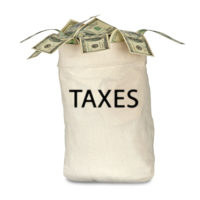Are There Limits on Tax Collection During Your Bankruptcy Proceeding?

As we’ve discussed in prior entries on the blog, when you file for bankruptcy, you will be protected by an automatic stay of collection of your consumer debts. While your case is ongoing, credit card and medical debt holders are not able to contact you about the debts they claim you owe, try to collect a debt, or sue you or collect on a previous judgment based on a debt. The rules regarding the automatic stay are somewhat different for past-due federal or state taxes, however. Read on to learn about what tax assessors can do while your Chapter 7 or 13 bankruptcy case is ongoing, and speak with one of our attorneys if you have additional questions about how a bankruptcy filing can provide relief from mounting debt.
Tax collection during bankruptcy
After you’ve filed your bankruptcy petition, creditors must suspend their collection activities so that the bankruptcy court can determine the amount that should be paid toward each debt. This stay on demands to pay even extends to state and federal tax assessors. Tax authorities, whether from the IRS or from the California Franchise Tax Board, cannot call you to demand repayment, garnish your wages, collect on a judgment lien on your property, or otherwise take your assets to satisfy a tax debt.
While the rules on discharging tax debt are more complex than those regarding other forms of consumer debt, there are even circumstances under which a tax debt can be eliminated entirely during the bankruptcy process. We will discuss elimination of tax debt in bankruptcy in a future post.
Notice of tax debt during bankruptcy
The bar on collection or seizure of assets does not bar all contact from tax assessors. While the automatic stay is in effect, tax assessors can begin or continue an audit, provide written notice that you owe a tax deficiency and demand payment, prosecute tax fraud or other tax crimes, demand tax returns, use tax refunds to pay past-due child support and, in certain limited circumstances, file a lien against property you own.
If you are in need of legal help in Southern California with mounting credit card or medical debt, don’t wait to take action; contact the seasoned and experienced Ventura bankruptcy attorneys at Rounds & Sutter LLP for a free initial consultation, at 805-650-7100.
